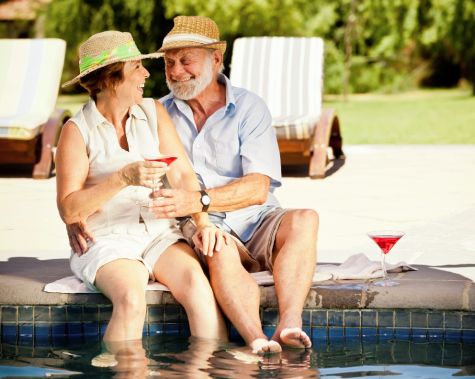During summer we are all at risk of dehydration however if you are older you are at more risk of severe heat stress and dehydration.
During a heatwave it is vital to monitor fluid intake to ensure you drink cold drinks regularly, such as water and fruit juice. Tea, coffee and alcohol should be avoided. Carers should also make sure the older person has a phone that will work during a power failure.
‘The elderly and frail in our community often do not realise when they are dehydrated” explains Southern Cross Care (WA) Inc. (SCC) CEO Errol Turner. “Staff in our facilities operate under strict procedures to ensure our clients drink fluids regularly, but for family and friends who provide care at home this is a time to be extra vigilant.”
SCC advises the following tips to help carers look after older people during a period of extreme heat:
Keeping cool
- Keep rooms cool; check that windows are shaded, especially north and west facing ones that let in most of the sun. If safe to do so, ventilate rooms late at night when it’s cooler.
- Consider moving people to a cooler room; top floor accommodation in particular is quickly affected by heat rises.
- Avoid the heat: advise older people to stay out of the sun, especially between 11am and 3pm.
- Check that fans and air conditioning work properly, and encourage clients to use them.
- Advise older people to reduce their level of physical exercise.
- Encourage them to take regular cool showers or baths, and splash cool water on their face, back and neck. A damp cloth on the back of the neck helps temperature regulation.
- Encouraging older people without air-conditioning to go to venues during the day that do have air-conditioning can also be beneficial.
Medication
- If they take prescribed medicines, they must continue to take these during periods of extreme heat.
- Be aware that certain medications can contribute to the onset of heat related conditions, such as sunburn and heat stress. Extra care should be taken to watch for signs that the heat is affecting them.
Eating and drinking
- Older people may not always be able to tell when they are thirsty so encourage them to drink water regularly.
- Encourage them to eat smaller meals more often during hot weather.
- Check that freezers and fridges are in good working order.
Clothing and aids
- Ensure older people wear light cotton clothing and a hat when going outdoors.
- Older people should always wear sunscreen, even if they only go outside for a short time, as their skin is much thinner and can burn easily.
- Ensure they wear sunglasses when going outdoors.
- Check that wheelchairs, walkers and other metal equipment that may be used by an older person do not become hot to touch, as this can cause a burn.
Further details about how to assist an older person cope during extreme heat can be found on the WA Health website.

